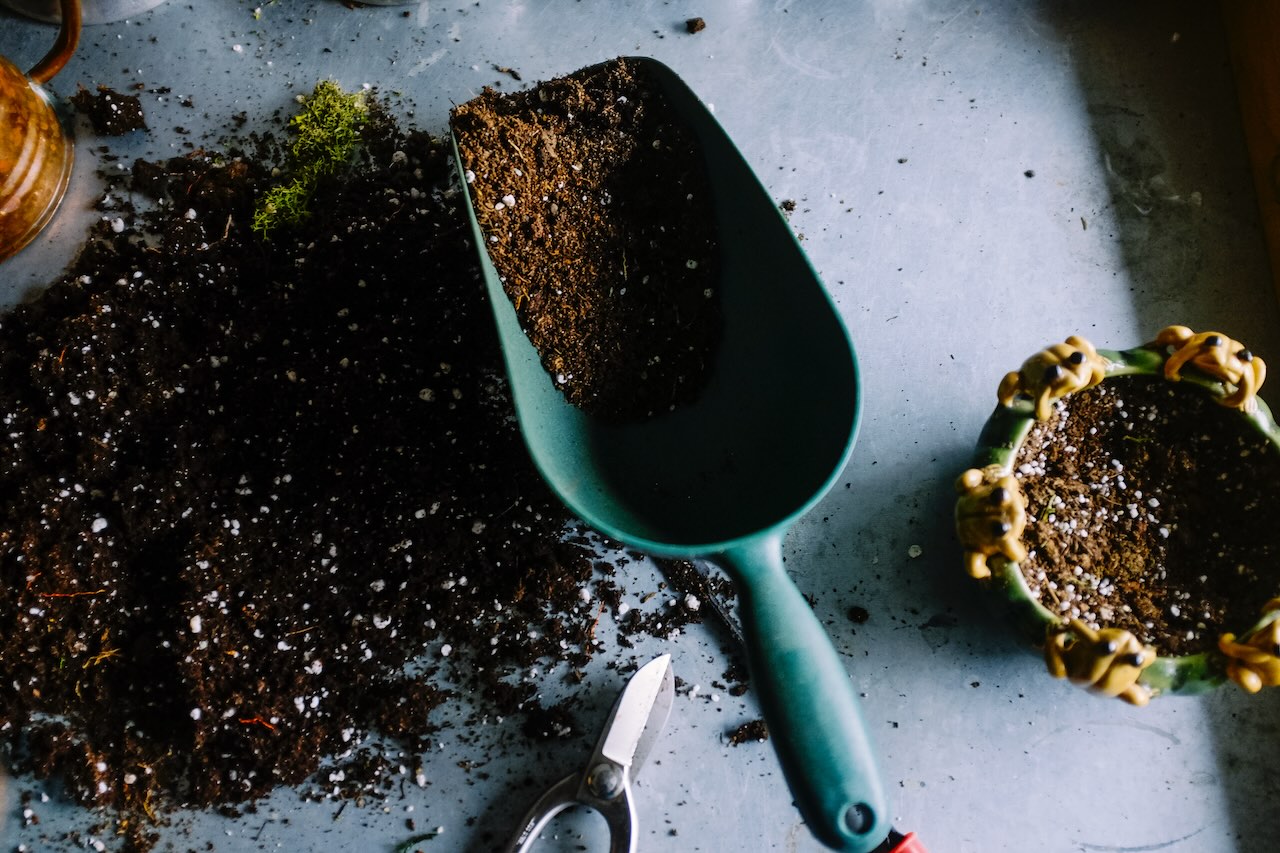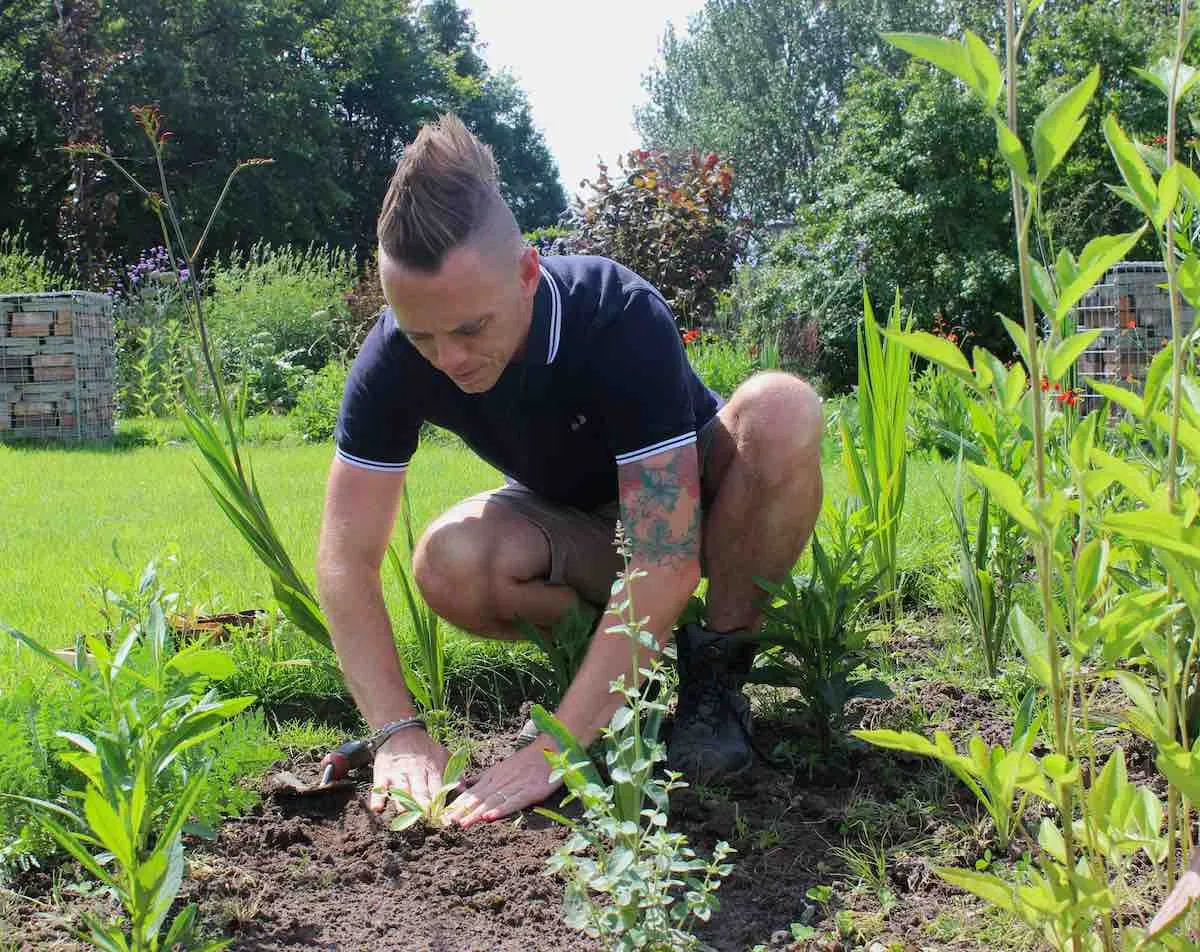Hi @londonn5
Thanks for your question on seed compost vs. regular all-purpose compost. The quick answer is yes, you can use seed compost instead of multipurpose or general compost. But you don't often use general compost for seeds if you can help it, as it can prevent germination. So you're okay to use that. Just be mindful that seed compost has lower nutrients, so you will need to feed it more than multipurpose compost.
Let's look into more detail about seed vs multipurpose compost.

Seed compost Vs MultiPurpose
Seed compost and multipurpose compost are two types of growing mediums used for sowing seeds and nurturing plants, each with its own distinct characteristics and purposes. Here are the key differences between seed compost and multipurpose compost so you understand why you would use one over the other.
The biggest differences between seed compost and normal compost are:
1. Composition:
- Seed compost: Seed compost is specifically formulated for germinating seeds. It typically consists of a finer texture and contains a lower level of nutrients compared to multipurpose compost. This helps to provide a lighter, more aerated environment that encourages seed germination and minimizes the risk of damping off.
- Multipurpose compost: Multipurpose compost is designed to be versatile and suitable for a wide range of gardening tasks, including potting, planting, and container gardening. It usually contains a balanced blend of organic matter, such as peat, composted bark, and other additives, to provide essential nutrients for plant growth.
2. Texture and Structure:
- Seed compost: Seed compost has a finer texture and is often sieved to remove larger particles, resulting in a smoother consistency. This finer structure allows delicate seedlings to establish their roots more easily and provides better drainage to prevent waterlogging.
- Multipurpose compost: Multipurpose compost typically has a coarser texture and may contain a variety of organic and inorganic materials, such as peat, sand, perlite, and vermiculite. This diverse blend of ingredients provides a more stable structure that can support the growth of a wide range of plants.
3. Nutrient Content:
- Seed compost: Seed compost contains a lower level of nutrients compared to multipurpose compost. This minimal nutrient content helps prevent seedlings from becoming overfed, which can lead to rapid growth but weak, leggy plants.
- Multipurpose compost: Multipurpose compost usually contains a higher level of nutrients to support the growth of established plants. These nutrients, such as nitrogen, phosphorus, and potassium, are essential for healthy plant development and overall vigour.
4. pH Level:
- Seed compost: Seed compost typically has a slightly acidic to neutral pH level, which is suitable for most seeds and seedlings. A balanced pH helps ensure optimal nutrient uptake and root development during the early stages of growth.
- Multipurpose compost: Multipurpose compost may vary in pH depending on the specific ingredients used in its formulation. However, it is generally pH-balanced or slightly acidic to promote healthy plant growth across a wide range of species.
5. Usage:
- Seed compost: Seed compost is specifically intended for sowing seeds and rooting cuttings. Its lightweight texture and low nutrient content make it ideal for providing the right conditions for successful germination and early seedling growth.
- Multipurpose compost: Multipurpose compost is suitable for a variety of gardening tasks, including potting, planting, and container gardening. It can be used to fill pots, planters, hanging baskets, and raised beds, providing plants with essential nutrients and moisture retention.
If you want to know more about plant feeds, check out my guide on how to feed plants and my two videos below.
https://youtu.be/5BhGtCjT2TQ
https://youtu.be/iFc7YByFIeo
Happy Gardening!
Lee Garden Ninja
Hi @londonn5
Thanks for your question on seed compost vs. regular all-purpose compost. The quick answer is yes, you can use seed compost instead of multipurpose or general compost. But you don't often use general compost for seeds if you can help it, as it can prevent germination. So you're okay to use that. Just be mindful that seed compost has lower nutrients, so you will need to feed it more than multipurpose compost.
Let's look into more detail about seed vs multipurpose compost.

Seed compost Vs MultiPurpose
Seed compost and multipurpose compost are two types of growing mediums used for sowing seeds and nurturing plants, each with its own distinct characteristics and purposes. Here are the key differences between seed compost and multipurpose compost so you understand why you would use one over the other.
The biggest differences between seed compost and normal compost are:
1. Composition:
- Seed compost: Seed compost is specifically formulated for germinating seeds. It typically consists of a finer texture and contains a lower level of nutrients compared to multipurpose compost. This helps to provide a lighter, more aerated environment that encourages seed germination and minimizes the risk of damping off.
- Multipurpose compost: Multipurpose compost is designed to be versatile and suitable for a wide range of gardening tasks, including potting, planting, and container gardening. It usually contains a balanced blend of organic matter, such as peat, composted bark, and other additives, to provide essential nutrients for plant growth.
2. Texture and Structure:
- Seed compost: Seed compost has a finer texture and is often sieved to remove larger particles, resulting in a smoother consistency. This finer structure allows delicate seedlings to establish their roots more easily and provides better drainage to prevent waterlogging.
- Multipurpose compost: Multipurpose compost typically has a coarser texture and may contain a variety of organic and inorganic materials, such as peat, sand, perlite, and vermiculite. This diverse blend of ingredients provides a more stable structure that can support the growth of a wide range of plants.
3. Nutrient Content:
- Seed compost: Seed compost contains a lower level of nutrients compared to multipurpose compost. This minimal nutrient content helps prevent seedlings from becoming overfed, which can lead to rapid growth but weak, leggy plants.
- Multipurpose compost: Multipurpose compost usually contains a higher level of nutrients to support the growth of established plants. These nutrients, such as nitrogen, phosphorus, and potassium, are essential for healthy plant development and overall vigour.
4. pH Level:
- Seed compost: Seed compost typically has a slightly acidic to neutral pH level, which is suitable for most seeds and seedlings. A balanced pH helps ensure optimal nutrient uptake and root development during the early stages of growth.
- Multipurpose compost: Multipurpose compost may vary in pH depending on the specific ingredients used in its formulation. However, it is generally pH-balanced or slightly acidic to promote healthy plant growth across a wide range of species.
5. Usage:
- Seed compost: Seed compost is specifically intended for sowing seeds and rooting cuttings. Its lightweight texture and low nutrient content make it ideal for providing the right conditions for successful germination and early seedling growth.
- Multipurpose compost: Multipurpose compost is suitable for a variety of gardening tasks, including potting, planting, and container gardening. It can be used to fill pots, planters, hanging baskets, and raised beds, providing plants with essential nutrients and moisture retention.
If you want to know more about plant feeds, check out my guide on how to feed plants and my two videos below.
Happy Gardening!
Lee Garden Ninja
 Lee Burkhill: Award Winning Designer & BBC 1's Garden Rescue Presenters Official Blog
Lee Burkhill: Award Winning Designer & BBC 1's Garden Rescue Presenters Official Blog



